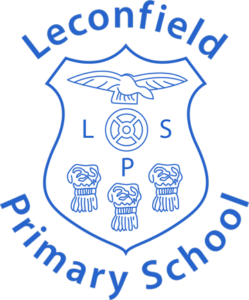PE & Sports Premium
The P.E. and Sport Premium is designed to help primary schools improve the quality of the P.E. and sport activities they offer their pupils.
Since 2013 the government has invested over £600 million on this funding.
This funding is ring-fenced and therefore can only be spent on provision of P.E. and sport in schools.
The funding is calculated as follows:
Schools with 16 or fewer eligible pupils receive £1000 per pupil.
Schools with 17 or more eligible pupils receive £16,000 and an additional payment of £10 per pupil.
How we use the P.E. and sport premium.
Schools must use the funding to make additional and sustainable improvements to the quality of PE and sport they offer.
This means that you should use the premium to:
Develop or add to the P.E. and sport activities that your school already offers.
Make improvements now that will benefit pupils joining the school in future years.
Further info:
‘Children enjoy exploring the purposeful learning environment that staff have created for them.’
‘Pupils are supportive of one another’
‘Pupils are respectful of people with different backgrounds or beliefs.’
‘In
mathematics, the ‘small steps’ of knowledge that pupils must learn are clearly identified.’
‘Staff have given careful thought to what
children will learning each term.’
‘Pupils listen carefully to other people’s opinions.’
‘Pupils feel safe in school. Bullying is rare.’
‘Learning builds on what pupils already know. Teachers have strong subject knowledge and support pupils to develop their reasoning skills.’
‘Pupils enjoy their role as ambassadors for the school, welcoming visitors and organising fundraising events.’
‘Leaders ensure that staff have the training and support to meet the needs of pupils with SEND’
‘Pupils enjoy attending this school.’
‘Teachers encourage pupils
to read in a variety of ways.’
‘Across
the school, pupils behave well both in lessons and during social times.’
‘ The early years staff know their children well.’
‘There are respectful relationships between adults and pupils.’
‘One pupil, typical of many, said, ‘We should treat others as we expect to be treated ourselves.’
‘Pupils are confident that staff will help them if they have any concerns.’
‘Leaders are working to further improve their curriculum.’
‘The safeguarding of pupils is a priority in school. Staff know pupils and families well.’
‘ Children learn to read as soon as they start at school. Welltrained staff skilfully help children to read with increasing confidence.’
‘Leaders and teachers promote a respect of different cultures and ideas.’
‘One group of pupils is supporting the community to develop a sensory garden in
the local area.’
‘There are consistent routines and high expectations.’
‘ Pupils, including those with special educational needs and/or disabilities (SEND), are given extra support if
they fall behind.’
‘Leaders encourage pupils to take on responsibilities in school.’
‘Leaders know how important it is for pupils to enjoy reading.’
‘Pupils enjoy taking part in a wide range of extra-curricular experiences, such as rugby club and choir.’
‘Pupils move around the school sensibly.’
‘Pupils learn how to stay safe, including when using the internet.’
‘Pupils learn to develop their independence from an early age.’



